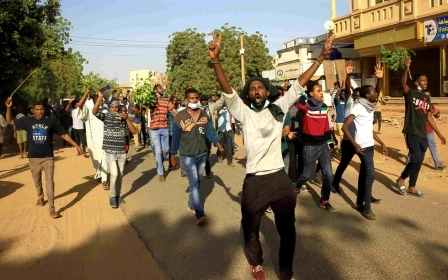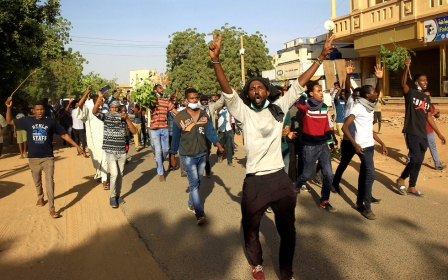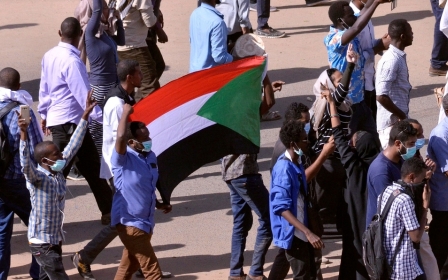Tear gas fired at Sudan protesters trying to deliver anti-government petition
Sudanese security forces on Thursday fired tear gas at protesters who were trying to deliver an anti-government petition to the local headquarters of President Omar al-Bashir's ruling party in Port Sudan, a witness said.
More than 200 people took part in the demonstration, which broke up before the protesters reached the building.
Sudan has been hit by a series of protests triggered by price increases and shortages of cash and fuel following months of worsening economic conditions. Many protesters have called for an end to Bashir's nearly 30-year rule.
Security forces have blocked and broken up demonstrations using live ammunition as well as tear gas and stun grenades since they broke out last month, witnesses say. They have also detained some protesters and opposition figures.
Earlier on Thursday, Bashir said in a speech the government was looking into handing out pay rises, starting this month, but he did not say by how much salaries would increase.
The protesters in Port Sudan, on the Red Sea, represented a group of political parties who want Bashir to dissolve the government and form a transitional administration that would set a date for elections.
Signatories to the petition include the Umma Party, led by opposition figure Mubarak al-Fadil al-Mahdi, the Reform Now Movement and the Democratic Unionist Party.
The petition also calls for the investigation of alleged abuses by security forces during two weeks of anti-government demonstrations across Sudan.
Calls for restraint
Bashir and the head of Sudan's National Intelligence and Security Service have called for restraint in the response to the protests, which officials have blamed on infiltrators.
The protests are the most sustained challenge to Bashir since he took power in a coup nearly 30 years ago, more widespread and longer-lasting than bouts of unrest in September 2013 and January 2018.
They risk propelling Sudan deeper into crisis, upending Bashir's attempt to stave off financial collapse and destabilising a country beset by simmering internal conflicts that straddles Africa and the Middle East.
"What we are witnessing today is the second and stronger wave of the protests that swept Sudan in September 2013. Frustration with the rising cost of living has been building up and is now boiling over again," independent analyst Muhammad Osman told the Reuters news agency.
Officials have acknowledged 19 deaths in the demonstrations. Amnesty International said last week it had credible reports that 37 protesters had been shot dead. "Bashir and his inner circle will not go down without a fight," said Osman.
Bashir has survived as one of the region's longest serving leaders, riding out 20 years of US sanctions and shrugging off an indictment by the International Criminal Court on charges of crimes against humanity and genocide in Darfur.
The protests come as the 75-year-old has been pushing to shore up his position economically as well as politically, lobbying to be removed from the list of countries, along with Syria, Iran and North Korea, that the US considers state sponsors of terrorism.
That listing has prevented an influx of investment and financial aid that Sudan was hoping for when the US lifted sanctions October 2017, according to economists.
Middle East Eye propose une couverture et une analyse indépendantes et incomparables du Moyen-Orient, de l’Afrique du Nord et d’autres régions du monde. Pour en savoir plus sur la reprise de ce contenu et les frais qui s’appliquent, veuillez remplir ce formulaire [en anglais]. Pour en savoir plus sur MEE, cliquez ici [en anglais].




